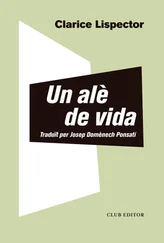As for learning, I did not learn anything during those lessons. The game of making him unhappy had taken much too great a hold over me. Enduring with undisguised resentment my lanky legs and my ever shabby shoes, mortified at not being a flower, and, above all, tortured by an enormous childhood which I feared would never end — I was determined to make him even more unhappy and I flaunfed my only wealth: the flowing hair which I planned to have beautifully permed one day and, in anticipation of the future, I tossed my hair at every opportunity. As for studying, I did not study. I trusted in my idleness which had never let me down and which the teacher accepted as one more provocation from a horrid little girl. In that he was mistaken. The truth is that I had no time to study. Happiness kept me occupied, remaining attentive took up days and days of my time: there were the history books which I read passionately, biting my nails to the quick, a refinement which I had recently discovered in my first ecstatic moments of sadness. There were the boys whom I had chosen but who had not chosen me. I spent hours suffering because they were unattainable, and yet more hours suffering by tenderly accepting them, for man was my King of Creation; there was the hopeful threat of sin, and I occupied myself with anxious waiting; not to mention how I was constantly preoccupied with wanting or not wanting to be what I was. I could not decide which part of me I did want, but I could not accept all of me; having been born was to be full of errors that needed correcting. No, it was not to irritate the teacher that I did not study; I only had time to grow. Which I did on all fronts, with a gracelessness that suggested some miscalculation; my legs did not go with my eyes and my mouth twitched while my grubby hands dangled at my sides — in my haste I grew without any sense of direction.
A photograph from that time reveals a healthy girl, savage and gentle, with thoughtful eyes under a heavy fringe, and this real image does not belie me, yet it portrays a ghostly stranger whom I would not understand even if I were her mother. Only much later, after I had finally accepted my physical presence and become essentially more secure, could I bring myself to study a little; before that, however, I could not risk learning, I did not wish to unsettle myself — I took intuitive care with what I was, since I did not know what I was, and I proudly cultivated the integrity of ignorance. What a pity the teacher was never to see the person I unexpectedly became four years later: at thirteen, with clean hands, freshly bathed, quite self-possessed and pretty, he would have seen me looking like a Christmas poster displayed on the veranda of a large house. But, instead of the teacher, a former chum of mine walked by and called out my name, without realizing that I was no longer a tomboy but a dignified young lady whose name could not be called out along the city pavements. ‘What is it?’ I asked the intruder coldly. I then received the news aloud that the teacher had died that morning. Pale, and with wide eyes, I looked at the street swirling beneath my feet. My composure shattered like a broken doll.
Going back four years. Perhaps it was because of everything I have just narrated, mixed up and jumbled together, that I wrote the composition the teacher had assigned, the dénouement of this story and the nucleus of others. Or perhaps it was only because I wanted to finish my work as quickly as possible and play in the park.
— I am going to tell a story, he said, and you will write a composition. But use your own words. When you have finished, you may go out to play without waiting for the bell.
This was the story: a very poor man dreamed that he had discovered treasure and had become very rich. On awakening, he packed his bundle and went in search of the treasure but travelled the wide world without finding anything. Weary of travelling, he returned to his modest house and, since he had nothing to eat, he started to plant seeds in his poor little yard; he planted so much, reaped so much, and began to sell so much, that he ended up a very rich man.
I listened with disdain, blatantly playing with my pencil, as if I wanted to make it quite clear that his stories did not fool me and that I knew everything there was to know about him. The teacher told the story without looking even once in my direction. Clumsy in my efforts to love him, I took pleasure in persecuting him, I pursued him with my gaze: I answered everything he said with a simple direct glance, which nobody in all conscience could have condemned. The look I affected was quite angelic and pure, completely open, like innocence confronting crime. And it always achieved the same result: perturbed, he avoided my eyes, and began to stutter. And this filled me with a sense of power that condemned me. And with pity. Which, in its turn, irritated me. It irritated me that he should force a nasty little brat like me to understand a man.
It was almost ten in the morning and the recreation bell was about to ring. My school was a rented building in one of the city parks and had the biggest playground I had ever seen. It afforded me as much pleasure as it might have given a squirrel or a horse. It had trees scattered here and there, rising and falling expanses of lawn. It seemed never-ending. Everything there was incredibly spacious, made for the long legs of a little girl, with space for piles of bricks and wood of unknown origin, for thickets of sour begonias which we ate, for sunlight and shadows where bees made honey. There was room there for an abundance of fresh air. And we lived life to the full; we rolled down every slope, whispered earnestly behind every pile of bricks, ate the different varieties of flowers, and into all the tree trunks we carved with our penknives dates, sweet obscenities and hearts pierced with arrows: girls and boys made their honey there.
A MISCHIEVOUS LITTLE GIRL (III)
I was finishing my composition and the scent of the hidden shadows was already beckoning me. I hurried. Since I only knew how ‘to use my own words’, writing was simple. What also made me hurry was the desire to be the first to walk down to the front of the classroom — the teacher had ended up banishing me to the back row — and to hand in my composition defiantly, just to show him how quick I could be, a quality which struck me as being essential in order to live and which, I felt sure, the teacher could not fail to admire.
I handed him my notebook and he took it without even looking at me. Offended that he should not have praised my quickness, I skipped out into the big park.
The story which I had transcribed into my own words was exactly the same as the one he had narrated. Except that even then I was beginning to ‘extract the moral of the story’, which made me feel virtuous but later threatened to smother me, I was becoming so inflexible. Anxious to impress him, I added on several phrases of my own at the end. Phrases which hours later I read and re-read to see what there was in them that had finally succeeded in provoking that man when I myself had so far failed. Probably what the teacher had wanted to make implicit in his sad tale was that hard work is the only way to make a fortune. Facetiously, I drew the opposite moral: something about the hidden treasure, which exists where one least expects to find it, which is only waiting to be discovered. I think I talked about squalid backyards with hidden treasure. I cannot remember, I do not know if those were my precise words. I cannot imagine with what childish phrases I expressed a simple idea which somehow turned into something complicated. I suppose that by wilfully contradicting the real meaning of the story, I had somehow promised myself in writing that idleness rather than work would yield me many gratuitous rewards, the only rewards to which I aspired. It is also possible that even then the theme of my existence was irrational hope, and that my perverse stubbornness was already manifest. I would give everything I possessed for nothing, but I wanted everything in return for nothing. Unlike the labourer in the story, in my composition I shrugged off all responsibilities and came away free and poor and carrying treasure in my hands.
Читать дальше












